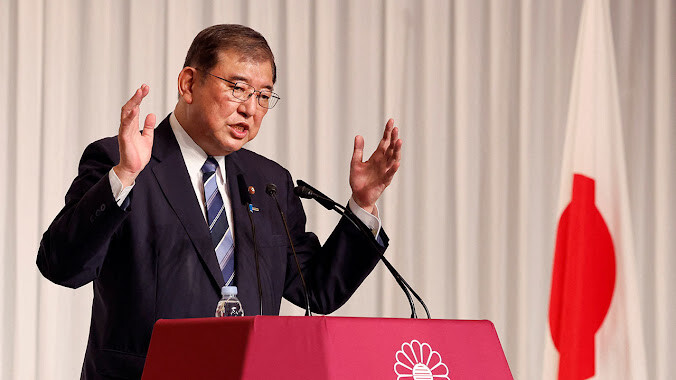
[GLOBAL ECONOMIC TIMES] On the 27th, Shigeru Ishiba, who was elected president of the Liberal Democratic Party of Japan, was elected as Japan's 102nd prime minister. Governor Ishiba is known to Koreans as a conservative politician with expert insight into security issues, and is a person who has often expressed reasonable positions on historical issues, unlike his ‘political rival’, former Prime Minister Shinzo Abe.
This Liberal Democratic Party presidential election was held under dramatic circumstances with Prime Minister Fumio Kishida suddenly declaring that he would not run. As the politics of ‘Abe’s first power’ continued for 7 years and 8 months, political funding issues and various pending issues arose within the Liberal Democratic Party, and as a result, the election was mainly a battle over domestic issues. Korea-Japan relations or historical awareness were not much of an issue.
Interest in Korea was focused on Governor Ishiba’s plan for an ‘Asian version of the North Atlantic Treaty Organization (NATO).’ His pledge book contains the content, “An Asian version of NATO that forms international norms based on the rule of law and takes the lead in building a regional multilateral security system.” In particular, in a recent article he contributed to the Hudson Institute in the United States, he emphasized that “today’s Ukraine is tomorrow’s Asia,” and argued for the need for a collective security system in which all members must join forces to respond if a member country is invaded in Asia.
Such a plan is bound to cause controversy in Korea. Few Koreans would agree with the idea that Japan, which no longer apologizes or reflects on historical issues, should form a de facto military alliance with Korea while excluding China. If this issue becomes serious, friction between Korea and Japan appears inevitable.
In President Ishiba's book on historical issues, 'Conservative Politician Shigeru Ishiba - My Policy, My Manifesto', he said, "Building a true relationship of trust between Korea and Japan without understanding how much the merger hurt the pride and identity of the people of the other country." “It cannot be done,” he emphasized. For sustainable Korea-Japan relations, as President Ishiba said, a humble awareness of Japan's history is essential.
In the field of diplomacy, Prime Minister Kishida, a ‘master of diplomacy’, and Governor Ishiba, a ‘defense expert’ who served in defense politics three times, are expected to be more difficult counterparts for Korea. If the Ishiba administration takes a boldly forward-looking stance toward the past and proposes participation in a collective defense system, what choice should Korea make? Is it possible to solve the problems of the past and collective defense simultaneously? Can the United States, which stations US troops in Korea, accept this situation?
Korea is facing challenges on a different level than in the past. Taking advantage of the United States struggling on two fronts in Ukraine and the Middle East, Japan appointed as its leader a politician who advocated ‘building an Asian collective security system centered on the US-Japan alliance.’ In this complex situation, Korea is in a situation where it has no choice but the current government, which has a naive perception of Japan to the point of frowning, and the opposition party, which says, “Thank you to China, and thank you to Taiwan.” The public's anxiety over the political world's inability to even properly understand this situation is increasing. It is time for Korean politicians to take this reality seriously.
[Copyright (c) Global Economic Times. All Rights Reserved.]



























